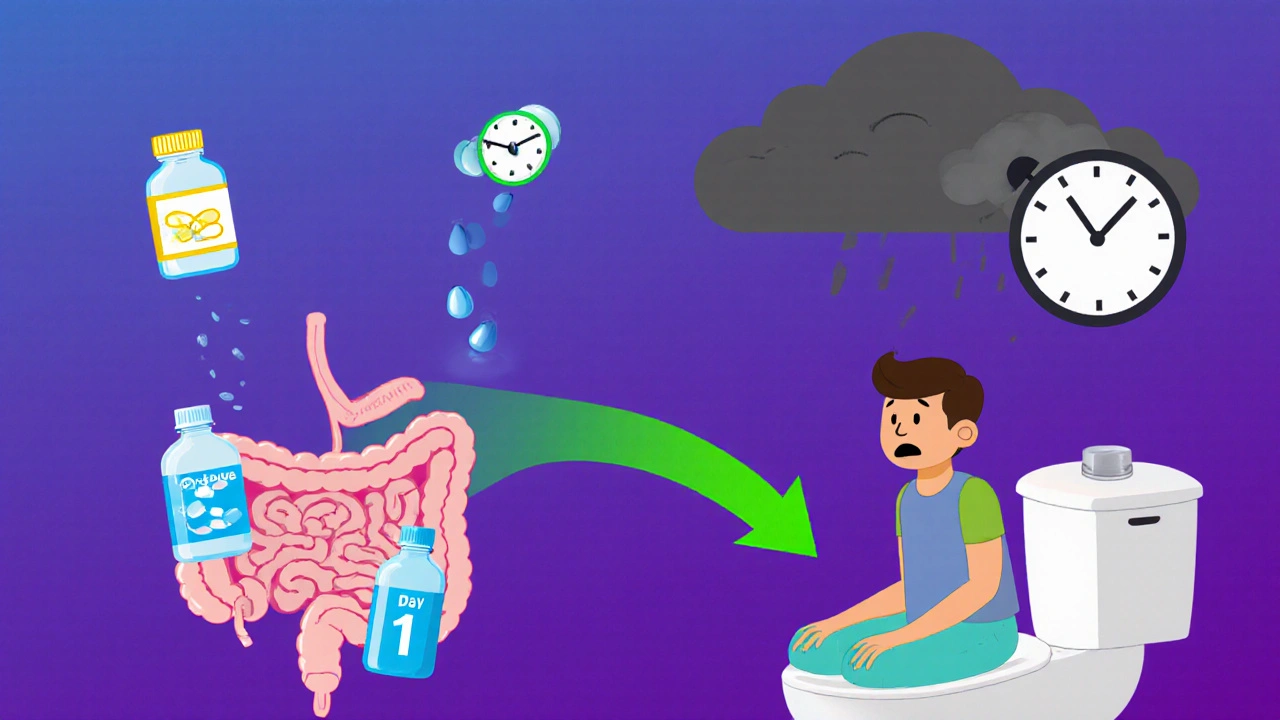Opioid-induced constipation affects up to 60% of patients on long-term pain meds. Learn how to prevent it from day one and when to move beyond laxatives to prescription treatments like PAMORAs.
Laxatives for OIC: Effective Options and What You Need to Know
When you're taking opioids for pain, opioid-induced constipation, a common and often overlooked side effect of long-term opioid use. Also known as OIC, it's not just uncomfortable—it can make pain management harder and lower your quality of life. Unlike regular constipation, OIC doesn't always improve with diet or fiber alone. That's where laxatives for OIC, specifically designed to counteract the slowing of gut movement caused by opioids come in. These aren't your typical over-the-counter remedies—they need to work differently because opioids bind to receptors in your intestines and literally shut down normal bowel motion.
Not all laxatives are created equal here. stimulant laxatives, like senna or bisacodyl push the bowels to contract, but they can cause cramping and don't fix the root problem. osmotic laxatives, such as polyethylene glycol or lactulose pull water into the colon to soften stool, which helps more consistently. Then there are newer options like peripheral mu-opioid receptor antagonists, including methylnaltrexone and naloxegol—these block opioids in the gut without affecting pain relief in the brain. They're targeted, effective, and often prescribed when older laxatives fail.
What works for one person might not work for another. Factors like kidney function, other meds you're on, and how long you've been on opioids all matter. Some people need a combo: an osmotic laxative daily, plus a stimulant only when needed. Others benefit from stool softeners or even gentle abdominal massage. The key is matching the tool to the problem. You're not just trying to move your bowels—you're trying to undo a drug's effect on your digestive system without losing pain control.
What you'll find below are real, practical guides from patients and providers who've walked this path. From comparing cost-effective generics to understanding why some laxatives fail, these posts give you the no-fluff details you won't get from a quick Google search. Whether you're managing OIC yourself or helping someone else, you'll find clear, tested advice—not theory, not ads, just what works.

